Supreme Court grapples with leaving Donald Trump on presidential ballot in Colorado: 7 takeaways
- Oops!Something went wrong.Please try again later.
- Oops!Something went wrong.Please try again later.
- Oops!Something went wrong.Please try again later.
- Oops!Something went wrong.Please try again later.
WASHINGTON – The U. S. Supreme Court on Thursday appeared to be looking for a way to ensure stability in this year’s presidential election by not letting Colorado use an anti-insurrectionist provision of the Constitution to block former President Donald Trump from the ballot.
“I think that the question that you have to confront is why a single state should decide who gets to be president of the United States,” Justice Elena Kagan, one of the court’s three liberal justices, told the attorney for the Colorado voters challenging Trump’s eligibility.
Other justices raised concerns about a mismatch of ballots across the country if each state makes its own decisions on whether Trump –or President Joe Biden – qualifies as an insurrectionist under Section 3 of the 14th Amendment.
During the just over two hours of oral arguments in a case with potentially huge consequences for the election, the justices focused more on the practical implications of the decision than the technical arguments over the wording of the provision.
“The court seemed inclined to let the political process play out,” said Notre Dame Law School Professor Derek Muller, who has been closely following the ballot eligibility issue.
Here are the top takeaways from the debate.

Concern about uniformity
Chief Justice John Roberts pressed the attorney for Trump’s challengers on what would happen if the court allows Colorado to take Trump off the ballot. Wouldn’t other states then undertake their own proceedings with potentially different outcomes – some striking Republicans and others finding reasons to exclude Democrats under their own interpretation of the 14th Amendment, he asked.
“It will come down to just a handful of states that are going to decide the presidential election,” he added. “That's a pretty daunting consequence.”
It wasn’t just the court’s conservative bloc raising such questions.
Kagan said the question of who qualifies for the ballot sounds “awfully national,” rather than a question that can be left up to each state.
Justice Ketanji Brown Jackson asked why the amendment’s authors would have created a situation that would result in “disuniformity” in which elections are pending and different states suddenly say one candidate is eligible and another is not.
Jason Murray, the attorney for the Colorado voters challenging Trump, said the amendment’s authors intent was ensuring that insurrectionists and rebels not hold office again. Letting states enforce Section 3 is an additional layer of safeguard, he said.
And there is national oversight, he responded to Kagan, because of the Supreme Court’s ultimate review authority.
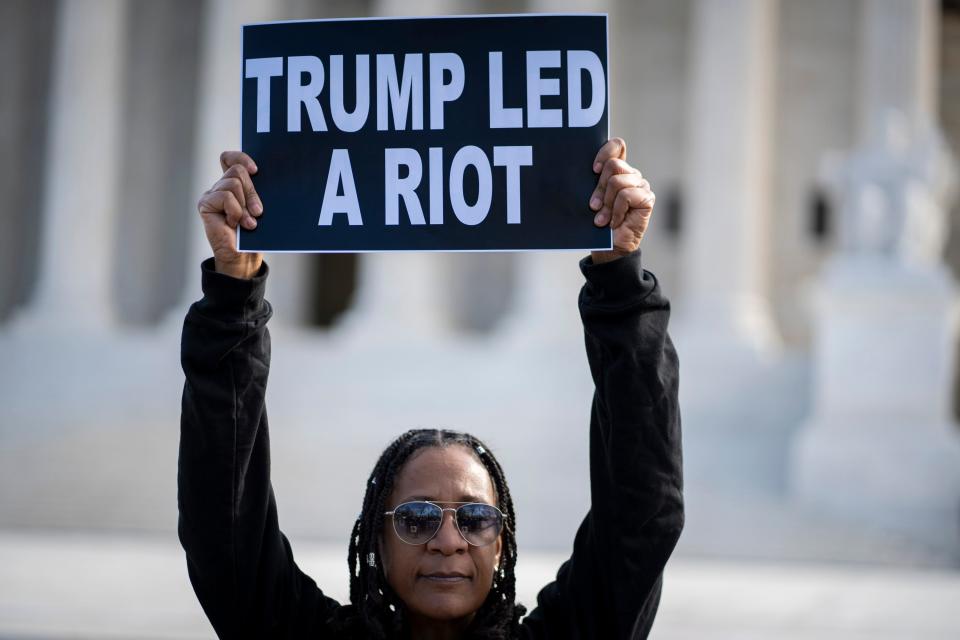
Who defines insurrection?
The justices drew a distinction between clear cut qualifications for the presidency, such as age, and the less defined standard in the 14th Amendment of having “engaged in insurrection.”
Justice Brett Kavanaugh said the term insurrection “jumps out” and raises the questions of how it’s defined and who decides if someone has engaged in it. Another section of the amendment indicates that Congress has the primary role, he said.
"It is entirely up to Congress," Jonathan Mitchell, Trump's attorney, said at the start of the arguments in response to the first question of the debate, which came from Justice Clarence Thomas.
Murray, the opposing attorney, agreed there must be a process for determining the applicability of Section 3. But, he said, nothing in the amendment says Congress has that exclusive role.
“We certainly have a long history in this country of states using their power to determine the manner of selecting presidential electors to enforce other qualifications in the Constitution,” he said.
And the Supreme Court can interpret the amendment for the states just as it interprets other constitutional provisions, he argued.
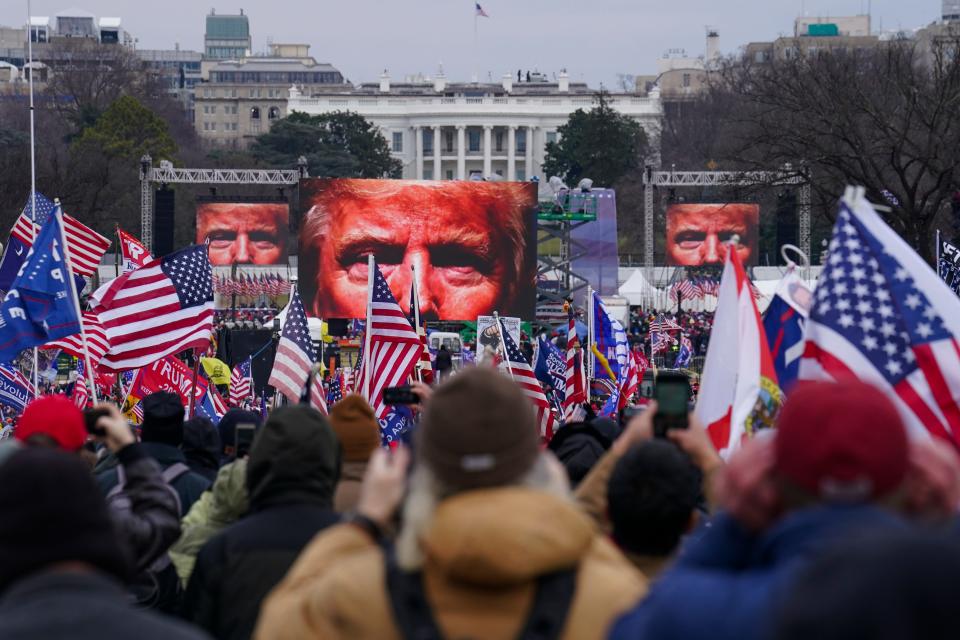
Was there an `insurrection' on Jan. 6, 2021?
Trump’s lawyer had his own definition for what constitutes an insurrection – and it doesn’t include the Jan. 6, 2021, attacks on the Capitol.
Under questioning from Jackson, Mitchell rejected the idea that Trump’s supporters were trying to overthrow the government when they stormed the Capitol to disrupt Congress while lawmakers counted Electoral College votes.
“This was a riot. It was not an insurrection,” Mitchell said. “The events were shameful, criminal, violent, all of those things, but it did not qualify as insurrection as that term is used in Section 3.”
The Supreme Court has ways to decide this case without addressing whether Trump “engaged in insurrection” and the justices did not spend much time debating that question.
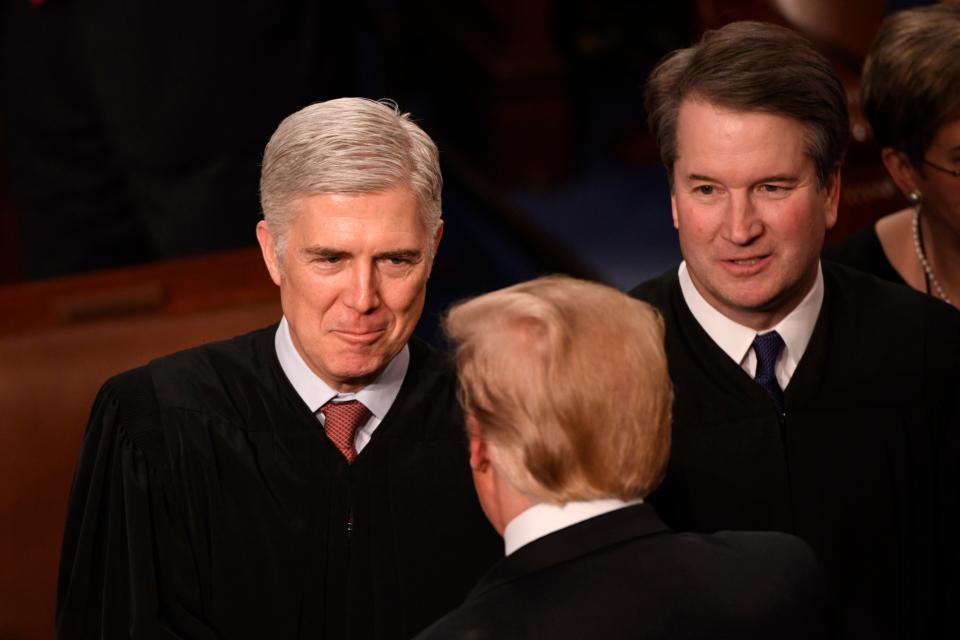
Justices question what is best for democracy
Amid the dense legal arguments, Justice Brett Kavanaugh cut to the point by asking Trump’s opponents what is the right ruling for democracy.
Kavanaugh described the constitutional provision as having elusive or vague language. He questioned disenfranchising potentially millions of voters by removing a candidate from the ballot.
“What about the background principle, if you agree, of democracy?” Kavanaugh asked.
But Murray, the lawyer for Colorado voters, argued the Constitution − by prohibiting insurrectionists from running for office − aims to safeguard democracy. The authors of the provision aimed to prevent people who violently broke their oaths to the Constitution from being trusted to hold power again, Murray said. In the current case, Trump tried to disenfranchise 80 million Americans who voted against him, Murray said.
“The Constitution doesn't require that he be given another chance,” Murray said.
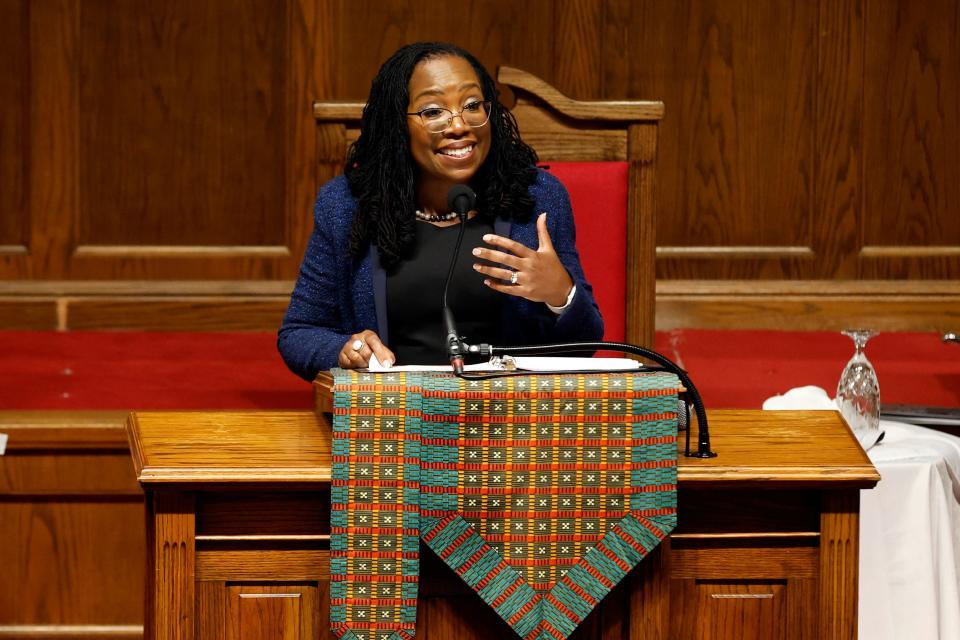
Civil War shadows prohibition against 'charismatic' insurrectionists: lawyer
Several justices questioned why states hadn’t wielded the amendment, which aimed to prevent members of the Confederacy from regaining power, against national candidates during the 150 years between its adoption and Trump’s campaign.
Jackson asked whether the amendment targeted local officials or even candidates for Congress from campaigning, rather than presidential candidates.
“Can you speak to the argument that really Section 3 was about preventing the South from rising again in the context of these sort of local elections as opposed to focusing on the presidency?” Jackson asked.
Murray said by the time the amendment was ratified in 1868, Confederates had already been pardoned. He also said ballots functioned differently at the time, with most voters writing in the names of their favored candidates rather than having a list provided.
“What is very clear from the history is that the framers were concerned about charismatic rebels who might rise through the ranks up to and including the presidency of the United States,” Murray said.
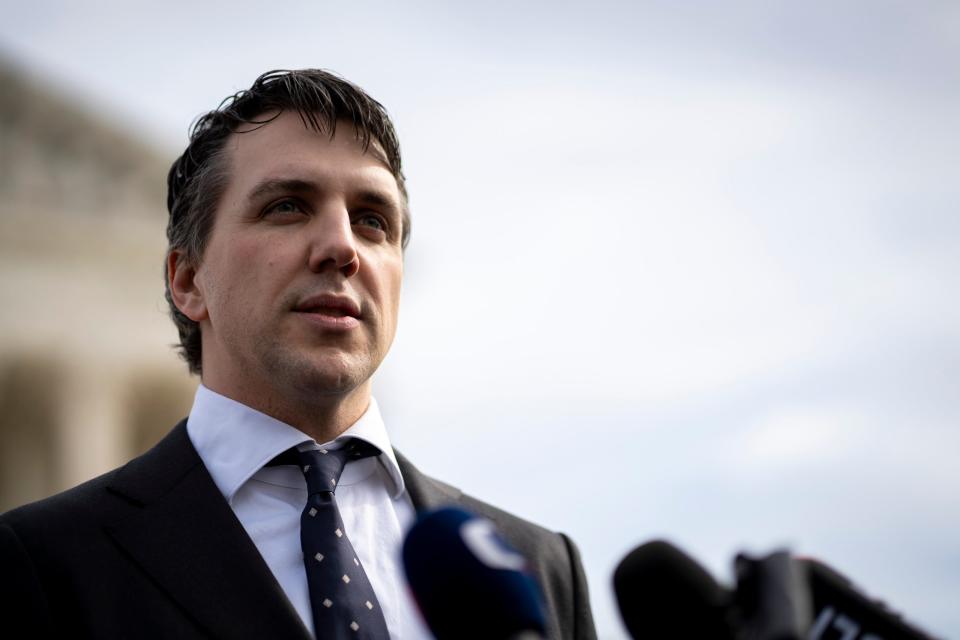
Did Trump get due process?
Kavanaugh brought up the concerns of one of the Colorado justices who complained that Trump had not received a fair shake during the district court’s five-day trial to determine his ballot eligibility.
Colorado Supreme Court Justice Carlos Samour, one of the three dissenters in the court’s 4-3 decision disqualifying Trump, said the litigation “fell woefully short of what due process demands.”
Kavanaugh said that complaint is another reason why this type of decision should not be left up to each state.
Murray said Trump was able to call any witness he wanted, cross-examine the challengers’ witnesses and testify himself.
“He didn’t use all of his time at trial,” Murray said. “There was ample process here, and this is how ballot access determinations in election cases are decided all the time.”
Trump didn't attend hearing, but had some reaction afterward
Trump didn't attend the argument, as he has recent civil lawsuits. He is campaigning again for the White House and had a political party scheduled Thursday in Nevada for the caucuses.
Trump told reporters in West Palm Beach, Florida, that his political opponents had engineered the lawsuit.
"It's election interference and it's really very sad," Trump said.
Trump said he listened to the Supreme Court argument, which was available on the internet, and thought it was "beautiful."
"I hope that democracy in this country will continue because right now we have a very, very tough situation with all of the radical left ideas with the weaponization of politics," Trump said.
This article originally appeared on USA TODAY: Supreme Court weighs Donald Trump on ballot in Colorado: 7 takeaways

